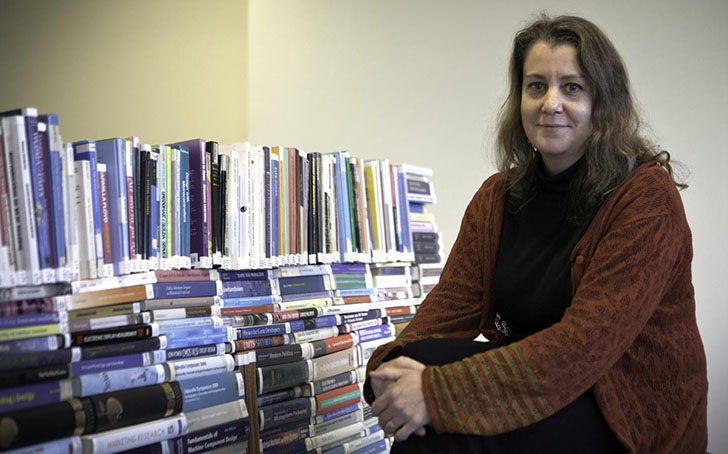
Photo credit: Anders Johansson, University West
In her dissertation, Karin Kittelmann Flensner of the University of Gothenburg studied how Swedish teachers and students often talk about religion as something outdated and strange.
Kittelmann Flensner's study is based on observations of Religious Education in three Swedish public upper-secondary schools during the school year 2011-2012. She followed 13 teachers who taught in 24 different student groups. Sweden is often described as the world's most secularised country, and Kittelmann Flensner found that the country's secular attitudes were easily discernible also in the studied classrooms and dominated the talk about religion and worldviews.
Students and teachers also talked about Sweden as being a Christian country. However, this view did not refer to religious faith but rather to the Swedish tradition and history, and the point of the discussion was often to define a 'we' in relation to a 'them'. In the classrooms, 'the others' became synonymous with religious people in general and Muslims in particular. And this despite the fact that there in every classroom were students who saw themselves as part of various Christian, Muslim, Buddhist, Hindu and other religious traditions.
The national syllabus of Religious Education emphasises the importance of understanding and respecting people with different views and backgrounds, but the results of the study suggest that these aims may be difficult to reach if people belonging to various religious traditions are described as unintelligent and deceived, which was often the case. It also makes it difficult to prepare the students for a life in a pluralistic society.